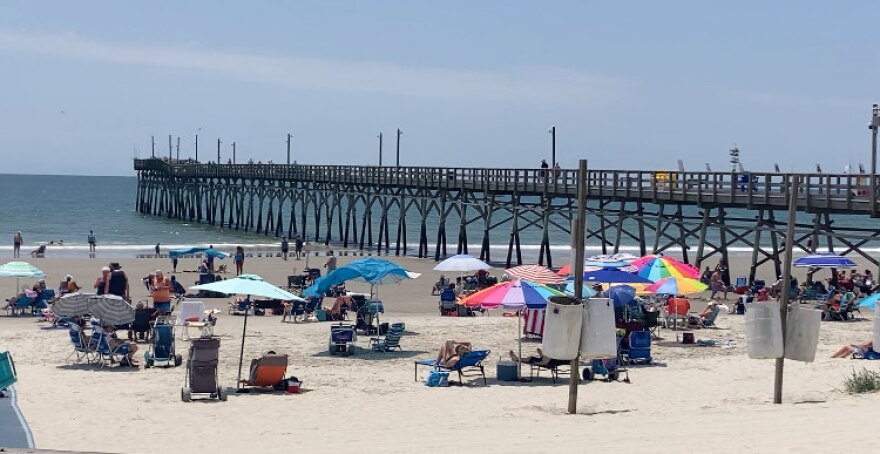Sea turtles are among the most captivating creatures found on the eastern North Carolina coast, and one was recently set free after being nursed back to health; it was stunned by unusually cold weather early this year and also had other injuries.
World Turtle Day was also homecoming day for a Kemp’s ridley sea turtle after several months of care by the Chief Veterinarian at the North Carolina Museum of Natural Sciences.

Dr. Dan Dombrowski says sick or injured turtles found along the North Carolina coast are generally cared for by the North Carolina Aquariums, a division of the North Carolina Department of Natural and Cultural Resources, but the museum is also a Sea Turtle Assistance and Rehabilitation (STAR) Center and they work closely together when it’s needed.
"We help them when we can to rehab sea turtles like this one. So, they got a large number of turtles in a cold stranding event in beginning of this year. They reached out and we coordinated with them to help three of the sea turtles, Kemps ridley turtles that were in that cold stranding event.”
More than 100 turtles were rescued from frigid waters near the end of January; they were stunned by the cold water, which makes their heart rate and other functions slow, and leaves them lethargic and unable to swim.
Aquarium staff reached out to the museum to care for three of them, in part because they have a veterinarian on staff to provide the higher level of care they needed.
"They sometimes have hundreds of turtles that they're managing during these cold stranding events. We only had three, but we could take three that needed a little more care and attention.”

Dombrowski said the six-pound turtle that made the drive in a black Rubbermaid container from Raleigh to Sunset Beach also had some injuries.
“This one had some severe lacerations on one of its flippers all the way down almost to bone; we had to shoot some radiographs and really monitor that to make sure that there wasn't a bone infection. It was just soft tissue. We were able to manage that wound.”
The turtle also had some abscesses and shell lesions, which Dombrowski says may or may not have been associated with the cold stranding event.
The Kemp's ridley is the rarest species of sea turtle and is also the world's most endangered species of sea turtle.
One unique thing about the turtle care at the museum is that visitors get a chance to watch as Dowbroski works to get them healthier and stronger.
"We have a space called the window and animal health where guests can interact with our veterinary staff, watch the exams on these turtles and watch their progression and improvement and healing over time, all the way up until release.”

Sunset Beach Sea Turtle Watch Coordinator Carmel Zetts helped organize the release and said, “It's always exciting to let them go back home.”
The bulk of her work, though, is just getting started. Sea turtle nesting season has just begun in eastern North Carolina.
“We have one nest, we had it on the 15th of this month, which is early for us. It's the first time we've had one on the 15th, which is my birthday -- I've been doing this for 30-some years, and it's the first one that I've ever had on my birthday,” Zetts said.
With ride from the Sunset Beach Police Department, the turtle was released on a quieter section of the beach, away from the pier, which was attracting a growing crowd of Memorial Day weekend visitors.




